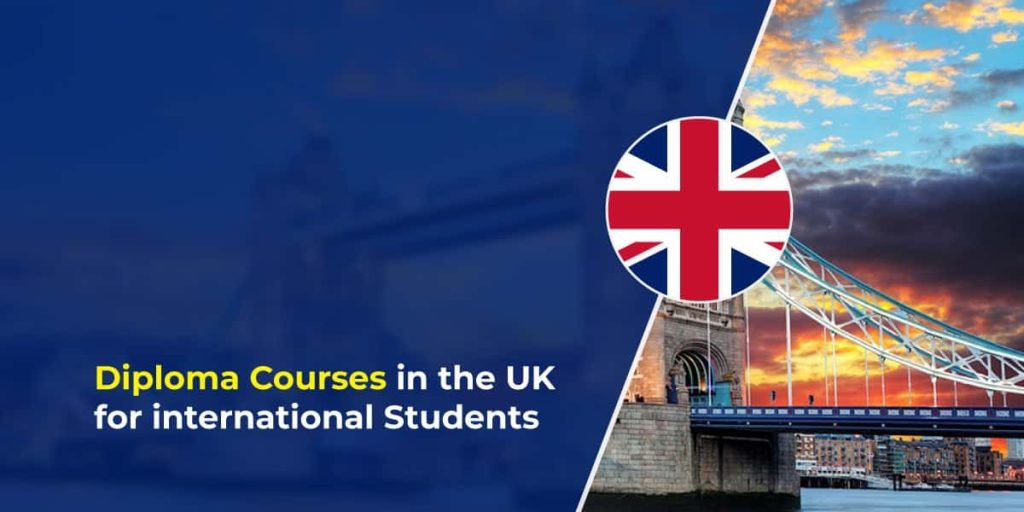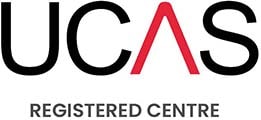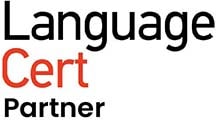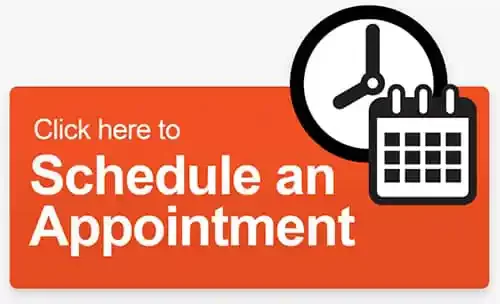In terms of education, the UK is the best place to start with. Many Universities in the UK offer world-class education for international students. A student can find varieties degree options according to their eligibility. Apart from the undergraduate and postgraduate courses in the UK, an international student in the UK can find many undergraduate and postgraduate diploma courses in various sectors.
What are the Diploma Courses in the UK?
If you want to learn in a particular vocation field and want to get special knowledge and proficiency in a specific area, then Diploma courses in the UK are for you. If you are from Algeria, then the diploma courses are the most favourable ones for you. It provides students with major job opportunities after completing a course in the UK. It will make students ready for work in the industry.
Advantages of taking a Diploma course in the UK?
There are many advantages of taking a Diploma course. Such as-
- A Diploma course will make you job ready faster. You will have skill-based learning. A vocational course will help you to achieve the skills you need. Attaining these skills, you will be confident enough to apply them in your workplace. Besides, when you have proficiency, you will be valued by employers.
- A survey showed that 78 per cent of Diploma graduates are employed after training and earn a handsome salary.
- As you have the practical skills and knowledge to implement them in the industry, you will get a job faster than a fresh graduate and earn more.
- A Diploma course requires less time and money to complete. Most of the Diploma courses can be completed within a year or less. After the completion of the course, you will get the job soon.
- If you have fewer qualifications or poor results, you may not be able to qualify for a degree. But in terms of the diploma or vocational course, you may need not follow the higher education requirement. Besides, this course can gap bridge between your less qualification.
Qualification Levels in the UK
As we are learning about the diploma courses, we should know about the qualification levels in the UK. In the UK, most qualifications have a difficulty level. Usually, the higher level, the higher qualification. These qualifications are for England, Wales, and Northern Ireland. The level of qualification is different in Scotland. So the level of qualification is-
- Entry Level- Entry-level qualification has the there sub levels. They are 1, 2, and 3. Among them, the most difficult is level 3.
- Level 1- Level 1 qualifications are GCSE-grades 3,2,1 or grades D,E,F,G. At this level, a student will find a level 1 award, certificate, diploma, essential skills, National vocational qualification and many more.
- Level 2- Level 2 qualifications are GCSE-9,8,7,6,5,4 or grades A*, A,B,C / O level- grade A,B or C.
- Level 3- Level 3 qualification includes A level/AS level/International Baccalaureate Diploma/ International Foundation Year. All are NVQ Level 3 qualifications.
- Level 4- Level 4 qualifications are usually equivalent to 1st year of Bachelor/HNC. This qualification includes a certificate of higher education, higher apprenticeship, higher national certificate, level 4 award, level 4 certificate, level 4 diploma, and NVQ level 4 qualification.
- Level 5- Level 5 qualification includes 2nd year of bachelor’s degree/ HND. Level 5 qualification includes a diploma in higher education, foundation degree, higher national diploma, level 5 award, certificate, diploma, and NVQ.
- Level 6- Level 6 qualification is equivalent to a degree with honours, degree apprenticeship, graduate certificate, graduate diploma, level 6 award, level 6 certificate, diploma, NVQ. It provides a qualification of an ordinary degree without honours.
- Level 7- Level 7 qualification is equivalent to MA, MSc, MBA, PGD, and PGCE. It provides the qualification of NVQ level 7.
- Level 8- Level 8 provides doctorate qualifications: such as a PhD or DPhil.
Entry Requirements for the Diploma course in the UK?
In the UK, a student will find various undergraduate and postgraduate diploma courses. The eligibility criteria are different for various courses in the UK. However, these are the following requirements to apply for the diploma courses in the UK-
- For the undergraduate program, a student must have passed his/her 12th class with a minimum required GPA.
- For the postgraduate diploma program, a student must have completed a bachelor’s degree with a minimum required percentage of 60%-75%.
- English language proficiency is a must whether you want to pursue a diploma or other degree in the UK. It’s mandatory to communicate and study. There are many English test options available. You can take a proficiency test with a required score.
- If a student wants to pursue a course in management, he must take the GMAT or GRE test.
- You may also submit a Letter of Recommendation or Statement of Purpose.
How to apply for a Diploma Course in the UK?
There is no extraordinary method to apply in the UK for a Diploma course. It is as simple as applying to your home country. All you need to follow some specific rules and proper research. Let’s say, you want to apply in the UK from Algeria, and need an expert’s help. You can visit AIMS Education, a student consultancy firm. We have a direct partnership with many UK universities. Besides, we are associated with many UK colleges and institutions that provide many diploma/vocational or foundation courses. Before applying, you should-
- Shortlist the universities according to your budget, subject, and preference.
- Read all the eligibility properly before starting the application process. Match your eligibility to the entry requirements.
- Take the English language test to get the required level of English language proficiency.
- Carefully fill out the application form.
- Get ready for the interview. Take preparations properly as the interviewer will judge your intention behind studying in the UK through it.
Diploma Courses in the UK after 10th.
After completing secondary education in Algeria or other countries, an international student can pursue a diploma course in the UK. Several UK universities offer these courses for international students who have completed their 10th-grade education. It is to prepare them for higher education in the UK.
Eligibility Requirement for Diploma Courses in the UK after 10th
- For the Algerian student or students from other countries, to qualify for any Diploma or higher level qualification in the UK, he/she must take the language exam to prove their proficiency. It can be IELTS, PTE, TOEFL, Password, or other available tests.
- Students must obtain 65% marks in secondary education.
Diploma Courses in the UK after 12th.
Students often choose Diploma level courses or programs in the UK after 12 who want to pursue a short-term course in the UK. Usually, Algerian students choose these courses to achieve skills and practical experience in a short time to step into work life soon. A diploma degree in the UK takes short time and less money to complete.
The eligibility requirement to study in the UK after 12 for Algerian and other international students to take a Diploma course
- Secondary and higher secondary education certificates with a required percentage.
- English language proficiency test score.
- Minimum 65% marks in 12th grade. It’s for Humanities. For Science and Commerce, the mark should be 70 to 80% or above.
- A student should pursue a foundation or diploma program if he scored under 60%.
Documents that are required to apply for the diploma courses in the UK after the 12th from Algeria
- Original and attested certificates and mark sheets. For example, standard X, XII or Bachelor’s degree certificates.
- Two academic reference letters.
- Financial evidence
- English proficiency test score certificate.
- SOP
- Resume
- A suitable portfolio for the applicants of Arts, and design.
Undergraduate Diplomas courses and certificates for international students
After completing an A-level qualification, a student from Algeria or other non-English speaking countries can step forward into an undergraduate program. A bachelor’s degree in Art and Science is the most common type of qualification degree in the UK. But there are other options available for students who are not eligible or uninterested to take a Bachelor’s degree in the UK. There are many work experience-based or skilled-based qualifications available in the UK. Such as:
- Foundation Degree
In the UK, a foundation degree is a combination of academic and vocational qualifications for a higher degree. Generally, it is equivalent to two-thirds of an honours degree. The foundation degree is not the same as the foundation year. A Foundation degree is a qualification, whereas a foundation year prepares a student to take a degree in the UK. An Algerian student can take a foundation degree in the UK to get skilled and qualified.
If an Algerian or international student wants to take a bachelor\’s or postgrad degree in the UK but wants to gain some special course that will make him skilled in a particular field, then this kind of diploma course is the best choice for you.
- HNC diploma course for Algerian students
HNC or Higher National Certificate is a qualification awarded by Edexcel in England and SQA in Scotland. Any students from Algeria can take this course. It is an industry-specific pathway that is a very popular choice for students who want to fast-track their way into a career by not taking a lengthy degree. The HNC qualification is more focused on practical learning than theory-based. It prepares students for the industry or career in a short period.
- HND diploma course
HND stands for Higher National Diploma. It is an academic higher education qualification in the UK and other countries. It is a qualification that uses to provide with students practical skills and experience in a particular field. The Higher National Diploma is a level 5 qualification. It is equivalent to two years of university-level qualification. These types of courses focus on skills and help students to get a great career progression.
- Top Up
Let’s say, you have completed an HND qualification in the UK. It gives you two years qualification of at a university level. After completing it, you can take a top-up degree that is equivalent to a final year of an undergraduate degree. With this degree, you can top up your higher-level qualification.
- Diploma of Higher Education for Algerian or International students
DipHE Diploma of Higher Education is an essential vocational qualification for students. In terms of applying for a job, this qualification makes a student in a top position among the other candidate. It is an accredited professional qualification and is mostly preferred by employers.
- Certificate of Higher Education
The certificate of Higher education is another diploma course in the UK. In England, Wales, and Northern Ireland, it is equivalent to level 4 qualification. It is SCQF level 7 in Scotland. It is the same as the first level of a bachelor\’s degree in the UK. It is equivalent to 120 credits at level 7.
- National Vocational Qualification
Usually, NVQ is awarded in 7 different level. Level 7 is the same as a master’s degree qualification. Level 6 gives the same qualification as a bachelor’s degree. And level 4 and 5 respectively represent the first and second year of a bachelor\’s degree. Before enrolling on a master’s course, you must be employed. NVQs are usually focused on practical experience. There is no time limit for completing an NVQ module as candidates are observed in each unit when they are ready.
Postgraduate Diploma and Certificates
If you don’t have sufficient funds to get a full master’s degree in the UK, you can take a postgraduate diploma and certificate course. PGDip and PGCert give students qualifications same level as a master’s degree. The difference is they are shorter than the Master’s degree.
- Postgraduate Diploma courses
PGDip is an abbreviated version of a postgraduate diploma. It is a shorter vocational master’s degree that provides special qualifications in a particular area. After completing a postgraduate diploma, if you want to study more, you can take an extra year so that you can convert it into a master’s degree. However, if you want to focus more on work, these kinds of Diplomas are the best choice for you. It is because these degrees are offered online.
- Postgraduate Certificate Diploma courses
PGCert is an abbreviated form of a Postgraduate certificate. A postgraduate Certificate is also a qualification at the level of a Master’s degree. A postgraduate certificate gives the candidate a qualification in a short time.
So this is the information on Diploma courses in the UK for international students. If you want to study in the UK from Algeria or another country as an international student, visit AIMS Education, a student consultancy firm that can help you to get the best course and institution according to your choice.
FAQ -Frequently Asked Questions
Q. Does the UK offer Diploma courses for international students?
Q. How long does it take to complete a diploma course in the UK?
Part-time Study- ( 60 credits a year)
⦿ Certificate of Higher Education-(120 credits)-2 year
⦿ Diploma of Higher Education-(240 credits)-4 year
⦿ Bachelor’s Degree- (360 credits)-6 year
Full-time Study- ( 120 credits a year)
⦿ Certificate of Higher Education-(120 credits)- 1 year
⦿ Diploma of Higher Education-(240 credits)- 2 year
⦿ Bachelor’s Degree- (360 credits)- 3 year









